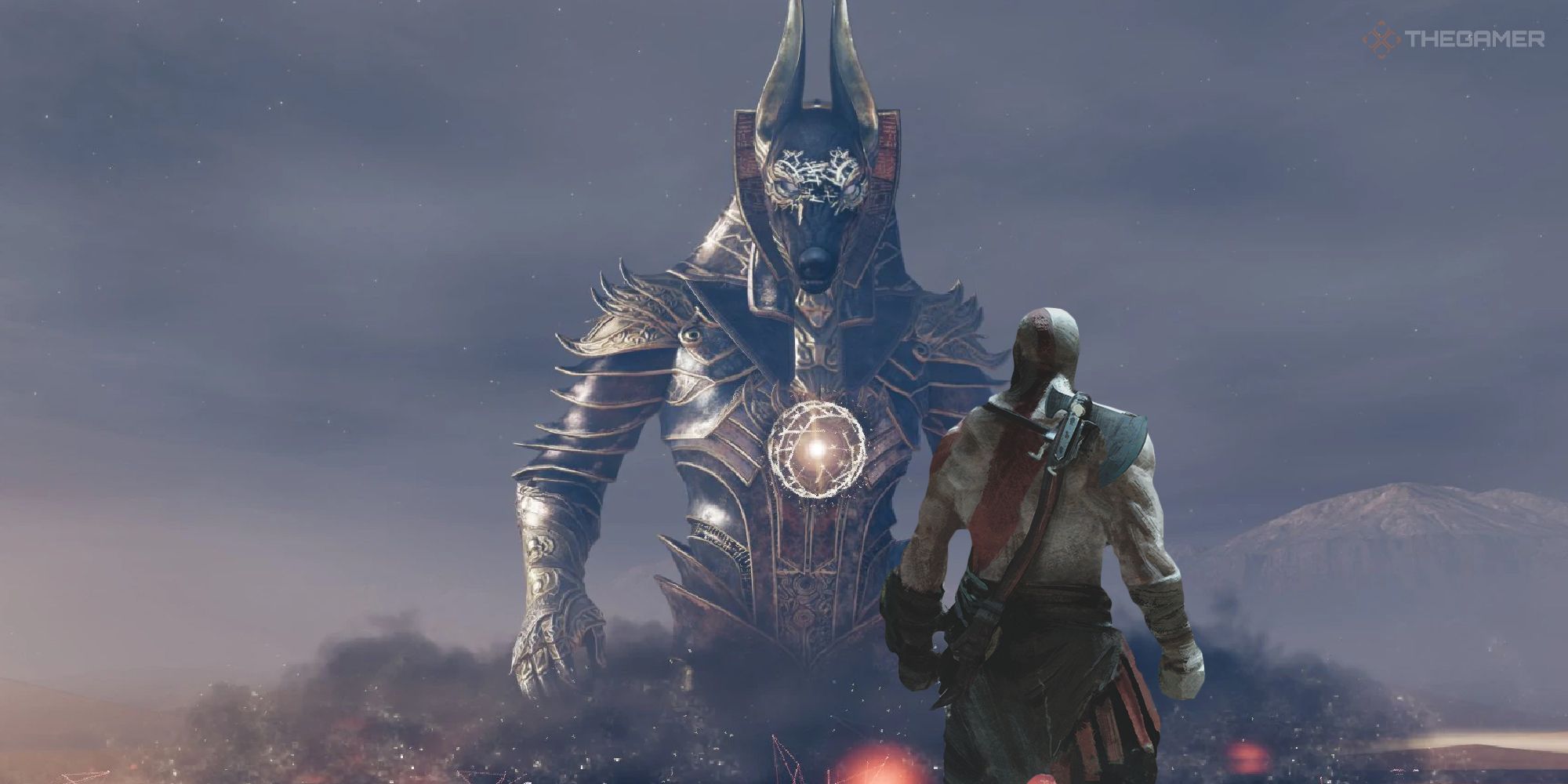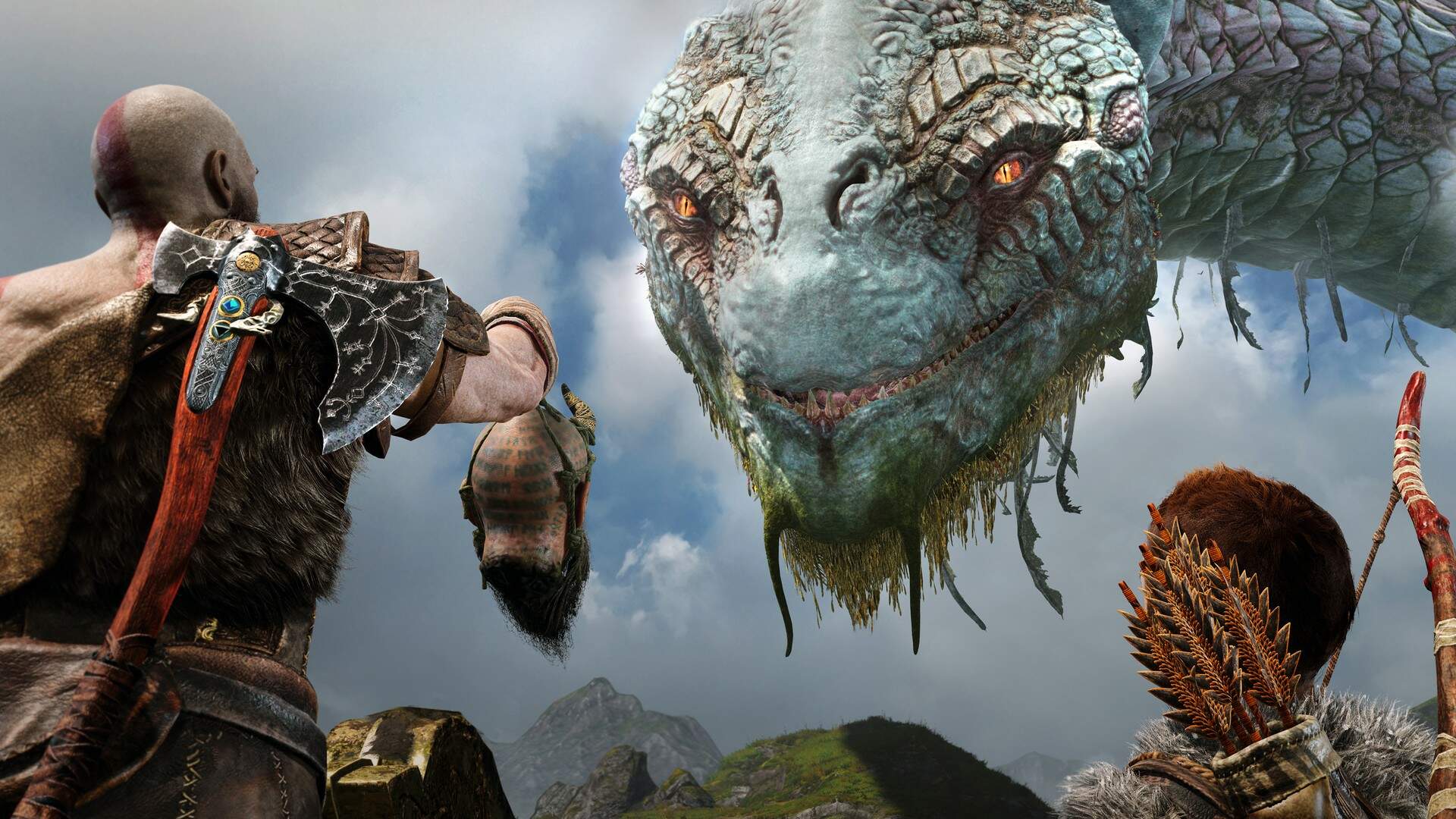After conquering the gods of Olympus and surviving the brutal winters of Norse mythology, Kratos now stands at the edge of a new world: the sun-scorched deserts and sacred temples of ancient Egypt. In God of War: Egypt, Santa Monica Studio delivers a powerful new chapter in the saga—an emotionally charged, myth-rich experience that redefines the warrior once again.
Where Norse lands were cold and introspective, Egypt burns with vengeance, prophecy, and divine politics. And in this land, Kratos finds himself not just at war with gods—but with the very concept of fate itself.
Set years after the events of Ragnarök, God of War: Egypt begins with Kratos traveling south, burdened by guilt, destiny, and the lingering words of the Norns. Arriving in the Nile Valley, he discovers a world ruled by gods unlike any he's encountered—less warriors, more judges and manipulators of cosmic balance.
Egypt is alive with contrast: bustling markets and barren sands, lush oases and cursed tombs. The world-building is breathtaking. Sandstorms alter the environment in real time. Tombs are procedurally explorable. Daylight and shadows affect both stealth and divine interactions. And looming over it all is the Du’at, the Egyptian afterlife, where judgment never ends.
Kratos, now a solitary traveler, seeks peace but is pulled into conflict when he saves a young boy named Kemet, marked by the gods for a purpose unknown. As Kratos protects Kemet from priesthood assassins and monstrous creatures, he learns that Ra—the sun god—has vanished, throwing the divine world into chaos.
At the heart of the game lies a celestial power vacuum. Set, god of chaos, rises to claim dominance. Isis, goddess of magic, seeks to resurrect Ra through forbidden rites. Meanwhile, Anubis and Horus offer cryptic warnings and moral dilemmas that test Kratos’ newfound restraint.
Kemet is no mere companion—he is a vessel of ancient will. And just like Atreus once did, he mirrors Kratos’ past decisions and pushes the Spartan toward emotional reckoning.
Combat in God of War: Egypt feels faster, leaner, and more magical. Kratos retains the Blades of Chaos, but now wields a new artifact: the Crook and Flail of Thoth, a divine weapon that balances crowd control and focused precision.
Magic is now attuned to the gods of Egypt:
-
Light of Ra – solar blasts that burn shadows and dispel illusions.
-
Chains of Du’at – necrotic strikes that pull souls from enemies.
-
Eyes of Horus – temporary foresight to slow time or predict enemy movement.
Enemy types are rich and lore-specific: mummified guardians that reassemble, giant scarabs that explode into flame, and jackal-headed warlords blessed by Set. Boss fights are grand, puzzle-like, and mythologically dense. One standout fight against a corrupted Sphinx forces the player to answer riddles under pressure—get them wrong, and the terrain turns hostile.
The gods of Egypt judge not only the dead—but the living. In this game, morality and karma aren’t just thematic—they’re woven into gameplay. At key moments, Kratos faces decisions that will impact alliances, power levels, and even who lives or dies. The Scales of Ma’at (balance) become a mechanic: tilt too far toward vengeance, and entire regions close off; seek peace, and other, darker forces emerge.
Kratos’ inner struggle is rawer than ever. He's tired, wiser, and constantly challenged by the question: Can a god change, or only delay his true nature? The father-son dynamic returns with Kemet, but it’s less about protection, more about preparing the next generation to break the cycle.
From golden temples glowing at dusk to the echoing chambers of the underworld, God of War: Egypt is visually stunning. The architectural detail pulls from real hieroglyphs and tomb murals. Sand and light are not just textures—they're storytelling tools. The score, composed by Bear McCreary, blends ancient Egyptian instruments with warlike drums and haunting vocals.

Voice performances soar. Christopher Judge returns with thunderous subtlety as Kratos. Newcomers shine, especially the voice of Anubis, delivered with both menace and melancholy.
God of War: Egypt is not just another mythic setting—it’s a bold reimagining of what Kratos represents. This isn’t the same god-slaying machine of Sparta or the grieving father of Midgard. This is a man trying to carve out a new legacy in a land where legacy defines the afterlife.
With emotional storytelling, groundbreaking combat mechanics, and a world rich in spiritual weight, God of War: Egypt stands tall as one of the most ambitious entries in modern gaming. It asks hard questions, offers no easy answers, and dares to let Kratos be more than a blade in the dark.The sun sets on Midgard. But in Egypt, the light—and the war—has only just begun.






-1751526496-q80.webp)